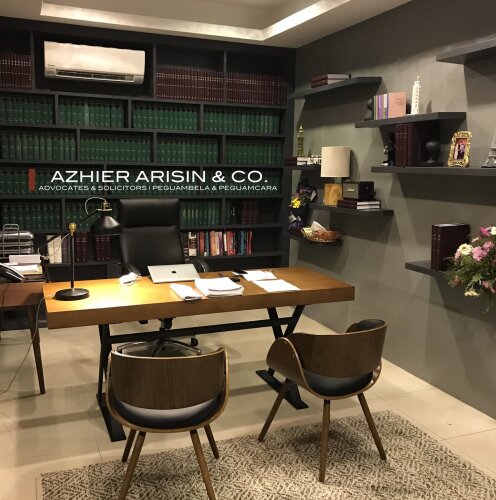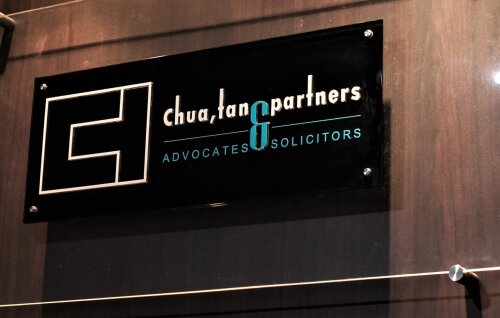Best ADR Mediation & Arbitration Lawyers in Malaysia
Share your needs with us, get contacted by law firms.
Free. Takes 2 min.
Or refine your search by selecting a city:
List of the best lawyers in Malaysia
About ADR Mediation & Arbitration Law in Malaysia
Alternative Dispute Resolution (ADR), including mediation and arbitration, is a vital component of the legal system in Malaysia, providing parties with methods to resolve disputes outside of traditional court proceedings. The process of ADR is often less formal, more flexible, and can result in faster and less costly resolutions. In Malaysia, ADR is governed by several statutes, with the Arbitration Act 2005 being the primary legislation for arbitration. Mediation, while less legislated, is often encouraged and facilitated by various institutions and courts. The purpose of ADR is to provide a confidential, efficient, and amicable way to resolve disputes, which can lead to more acceptable solutions for all parties involved.
Why You May Need a Lawyer
Engaging a lawyer who specializes in ADR mediation and arbitration can be beneficial in numerous scenarios. Common situations include:
- Contractual Disputes: When disputes arise from the interpretation or execution of contract terms.
- Commercial Conflicts: Businesses often encounter conflicts that require specialist advice to resolve without damaging relationships.
- Construction Disputes: Performance issues, delays, or payment disputes in construction projects.
- Employment Disagreements: Resolving workplace disputes confidentially and effectively.
- Family and Community Disputes: Finding amicable resolutions in personal disputes.
In these cases, a lawyer can provide expertise in navigating the ADR process, representing interests, and ensuring fair outcomes.
Local Laws Overview
Malaysia's legal framework for ADR is comprehensive, with the following key aspects:
- Arbitration Act 2005: This act governs domestic and international arbitration, ensuring adherence to standardized rules and procedures aligned with the UNCITRAL Model Law.
- Enforcement of Arbitral Awards: Malaysia recognizes and enforces both international and domestic arbitral awards under this act.
- Establishment of Arbitration Centers: The Kuala Lumpur Regional Centre for Arbitration (KLRCA), renamed as AIAC, plays a pivotal role in providing arbitration services.
- Mediation Initiatives: Although lacking comprehensive legislation, mediation is supported by court-annexed and institutional frameworks encouraging its use.
- Freedom of Choice: Parties can agree to the rules and procedures they wish to apply to their ADR proceedings, providing flexibility and control over the process.
Frequently Asked Questions
What is the difference between mediation and arbitration?
Mediation is a confidential process where a neutral third-party, the mediator, facilitates communication between disputing parties to help them reach a voluntary agreement. Arbitration, however, involves an arbitrator making a binding decision after hearing each party's arguments.
Is an arbitrator's decision final?
Yes, an arbitrator's decision, known as an award, is generally binding and enforceable, similar to a court judgment, unless it is challenged on grounds of procedural unfairness or public policy.
Can I choose not to participate in mediation?
Yes, mediation is a voluntary process; however, in certain contractual disputes, participating in mediation may be a condition precedented to arbitration or litigation.
What happens if mediation fails?
If mediation does not result in a resolution, parties may proceed to arbitration or litigation, depending on the terms of their agreement or the legal framework applicable to their case.
How long does an arbitration process take?
The duration varies based on the case's complexity, procedural rules, and the parties' cooperation, but typically, it concludes faster than traditional court cases.
Is legal representation necessary in ADR?
While not mandatory, legal representation is advisable to ensure informed decision-making and robust representation of your interests throughout the process.
Are ADR proceedings confidential?
Yes, confidentiality is a core principle of ADR, ensuring the details of the proceedings and settlements are not disclosed without consent.
How are ADR costs determined?
Costs depend on the complexity of the case, the institution administering the procedure, and the fees of the mediator or arbitrator, often structured as hourly rates or set fees.
Can a mediation outcome be enforced?
Outcomes reached during mediation can be turned into enforceable agreements if the parties enter into a settlement agreement formalizing the terms.
What role do the courts play in arbitration?
The courts have a supportive role, such as assisting in the appointment of arbitrators, granting interim measures, and enforcing or setting aside arbitral awards under specific circumstances.
Additional Resources
For those seeking further assistance or information on ADR, consider the following resources:
- Asian International Arbitration Centre (AIAC): Provides comprehensive mediation and arbitration services and guidelines.
- Malaysian Bar Council: Offers resources and directories of specialists in ADR law.
- Legal Aid Centres: Offer assistance for individuals unable to afford legal representation.
- Ministry of Domestic Trade and Consumer Affairs: Provides consumer-related mediation services.
Next Steps
If you require legal assistance for ADR mediation and arbitration, consider the following steps:
- Identify the Nature of Your Dispute: Clearly define the dispute to understand whether mediation or arbitration is appropriate.
- Consult a Specialist Lawyer: Seek a lawyer with expertise in ADR to guide you through the process, represent your interests, and provide informed advice.
- Choose an Appropriate ADR Institution: Determine which institution best meets your needs, whether it's for mediation or arbitration.
- Prepare Your Case: Gather necessary documentation, evidence, and witness lists if applicable, as advised by your lawyer.
- Engage in the Process: Actively participate in mediation or arbitration, maintaining open communication and cooperation.
Following these steps can help ensure a smooth and effective resolution process, providing a satisfactory outcome for all parties involved.
Lawzana helps you find the best lawyers and law firms in Malaysia through a curated and pre-screened list of qualified legal professionals. Our platform offers rankings and detailed profiles of attorneys and law firms, allowing you to compare based on practice areas, including ADR Mediation & Arbitration , experience, and client feedback.
Each profile includes a description of the firm's areas of practice, client reviews, team members and partners, year of establishment, spoken languages, office locations, contact information, social media presence, and any published articles or resources. Most firms on our platform speak English and are experienced in both local and international legal matters.
Get a quote from top-rated law firms in Malaysia — quickly, securely, and without unnecessary hassle.
Disclaimer:
The information provided on this page is for general informational purposes only and does not constitute legal advice. While we strive to ensure the accuracy and relevance of the content, legal information may change over time, and interpretations of the law can vary. You should always consult with a qualified legal professional for advice specific to your situation.
We disclaim all liability for actions taken or not taken based on the content of this page. If you believe any information is incorrect or outdated, please contact us, and we will review and update it where appropriate.
Browse adr mediation & arbitration law firms by city in Malaysia
Refine your search by selecting a city.














